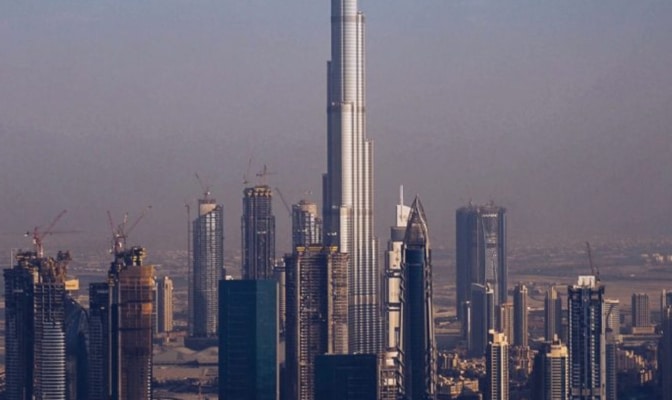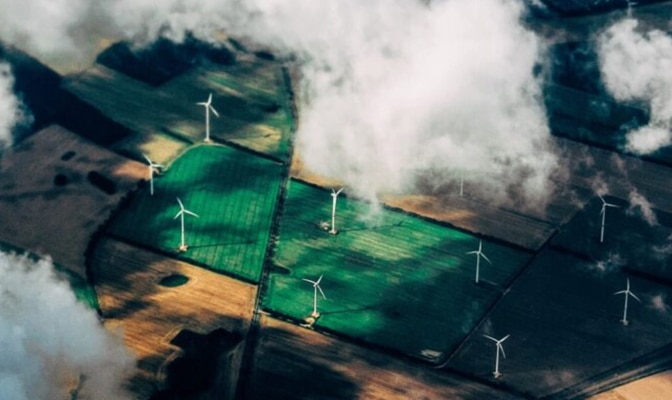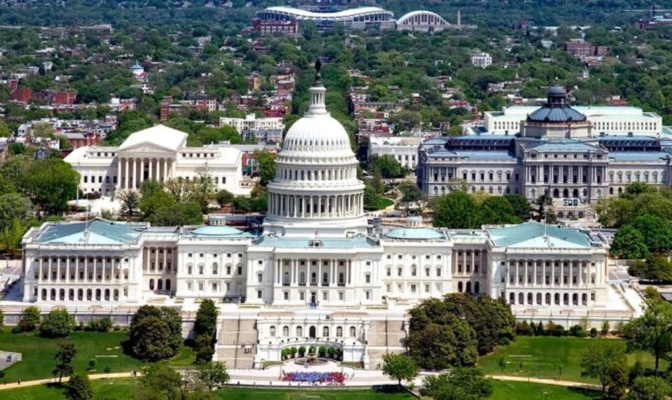If you want to know what ambition to achieve the low carbon energy transition looks like, you need only explore what’s happening in Saudi Arabia and the UAE.
Yes, there is an irony in that statement, but demand for their oil and gas overseas is powering a bold sustainability agenda at home. That has not always been the case, it used to fuel economic diversification – or if you were being cynical, the occasional frivolity – but what we’re seeing now deserves genuine praise.
Mitigating climate change and preparing for a more self-sufficient future underpins a long term, all of society strategy that is core to a younger generation of regional leaders’ achieving their vision. They have pinned their legacy on it, and whatever your view of Saudi Arabia’s de factor ruler, Mohammed Bin Salman, he is foremost amongst them.
For international businesses wondering what this all means in practice; well, it means a booming regional economy, and while the west confronts the reality of recession and a cost of living crisis, the Gulf offers some of the most compelling commercial opportunities anywhere in the world – with a just and sustainable transition a key new growth driver.
A booming economy
The post covid bounce back and high oil prices since the Ukraine war has meant GDP growth in 2022 is expected to be between 5-8% for most of the GCC. It’s even higher by some estimates. Inflation meanwhile is significantly lower, around 3-4%, compared to Europe and the US.
While expats in the UAE do complain about rising prices, this seems focused on the surge of Russian money in the housing market, rather than the cost of everyday goods and services. It’s estimated over 130,000 Russians have arrived in the UAE this year, with the majority choosing Dubai. That’s a staggering influx of people, and cash, when you consider the total population of the city is 3.5 million.
But an expensive apartment or villa aside people are upbeat and feeling bullish. They see chunky new business opportunities in everything from tourism, long part of the UAE’s story but also now Saudi Arabia’s diversification plans; the busiest local IPO pipeline for over a decade; and perhaps most surprising for a region still so systemically reliant on fossil fuels, the energy transition.
Aramco made over $40 billion in net income last quarter. Performance like that means Saudi Arabia’s PIF, a sovereign fund, is more active than ever putting Aramco’s cash to work. It’s acquiring large equity stakes in global businesses like Aston Martin, Meta and Alphabet, and of course there was the much-scrutinised purchase of Newcastle United (a very savvy deal in my opinion).
Other big Saudi companies have also been putting money to work overseas. Saudi National Bank – majority owned by PIF – recently invested $1.5 billion in Credit Suisse, taking their stake to nearly 10%, and Kingdom Holding bought into FTSE 100 insurer Phoenix Group for $283 million in the summer. The latter also backed Musk’s Twitter deal rolling over its shares and making it the second largest holder.
Back at home, the Saudi Government is spending Aramco’s billions on flagship projects. The highest profile of these is Neom, a futuristic mega city being built from scratch near the Red Sea. Delivering Neom means splitting the project up into around a dozen or so different sectors covering everything from food and technology to power and utilities. Unlike regional master plans of the past, at its core is a vision that Neom will be sustainable. What we eat, how we get about, and the water we drink all powered by renewables, mostly solar. Neom is also deliberately being built in one of the windiest parts of the country to offer a second renewable power source.
New business opportunities
Projects like Neom offer a broad and deep range of mandates for international and local companies. These firms often have small armies of people either based on site, in the capital Riyadh, or flying in and out from places like Dubai or Bahrain. A Saudi push to ensure more regional company headquarters are moved to its capital if they want a slice of the commercial action, is also underpinning a rise in expats relocating into the Kingdom. These new residents all need amenities, entertainment and other services.
Meanwhile, back in the Emirates, tourism has shrugged off the pandemic and hotel occupancy is high. It’s not quite at pre-covid levels but according to the Minister of Tourism and Economy, who spoke to a private capital conference last week, the average length of stay has increased, offsetting the lower occupancy rate.
The Minister also pointed to a buoyant IPO market with a current pipeline of over 30 listings. These floats are not just government linked entities either, but feature some impressive private companies like Americana, which raised $1.8 billion for a dual listing in Abu Dhabi and Riyadh. The free floats aren’t huge but the fact so many IPOs are getting done, often notably oversubscribed, speaks volumes to sentiment. It also means work for banks, lawyers, auditors and PRs.
Away from the public markets, various large state companies like ADNOC are doing smart new deals with private capital to unlock and monetise the potential of their vast land banks and real estate portfolios. The sovereign funds also make for ideal partners to the larger alternatives managers, where we have seen collaboration on new direct lending platforms for example, stepping in where the global banks alone used to operate.
More than a hedge on recession
One of the big questions is will the boom last or fade away with the oil price. 2023 is forecast to be slower for the region, as much of the world plunges into recession and demand for oil and gas reduces. Despite this, GDP growth will still likely hover between 3-5% in the Gulf, again a materially better situation than in the west.
Next year will also see the UAE host COP28, which will no doubt bring significant emphasis on sustainability to the economy, with both public and private entities encouraged to support the event and make commitments on carbon reduction.
So, the Gulf is a good hedge against a tough couple of years elsewhere. But it should be viewed as more long term than that because of the significant opportunities centred on the energy transition. Contrary to the scepticism you often hear from outside the region about how large fossil fuel producing countries can only be greenwashing, the intent is both serious and comprehensive. A younger, well-educated and more climate aware generation of regional leaders, has ensured the strategic thinking is detailed and funding for these plans remains a priority.
The Saudi Green Initiative, which guides the country’s efforts on green-growth and partners with most of the big state backed companies, including PIF, offers a strong clue to that lasting commitment. With a national net zero target set for 2060 and a renewable energy capacity target of 50% by 2030, over 60 different initiatives have been activated. These cover everything from a mangrove plantation scheme in Jeddah next year to waste management transformation in Riyadh in 2035.
PIF is a great example of how the state is moving at a rapid pace to deliver this agenda over the coming decades. In October it delivered the largest carbon credit auction in the world and successfully launched the first ever green bond (with 100-year maturity) by a sovereign wealth fund. With big new investments in electric vehicles and a manufacturing facility established in the Kingdom, there are plans to build 328,000 EVs a year. PIF will also fund the development of 70% of the country’s renewable energy capacity as per the 2030 target.
With leadership comes responsibility
What is happening in parts of the GCC right now is hugely impressive. It is an organised push towards net zero that is hard to fathom happening anywhere else, certainly not in Europe or the US.
There is little doubt in my mind that Saudi Arabia and the UAE will, in time, start to be recognised as pioneering sustainability plans that are the envy of the world. They have the financial resources, leadership, and long term vision to deliver these plans in a way other countries simply cannot.
However, with this role they also take on a major responsibility. That is to be transparent about their progress, to communicate regularly and openly, and not just about successes but inevitable challenges and setbacks too. In doing so the rest of the world will be able to follow their lead with confidence.







